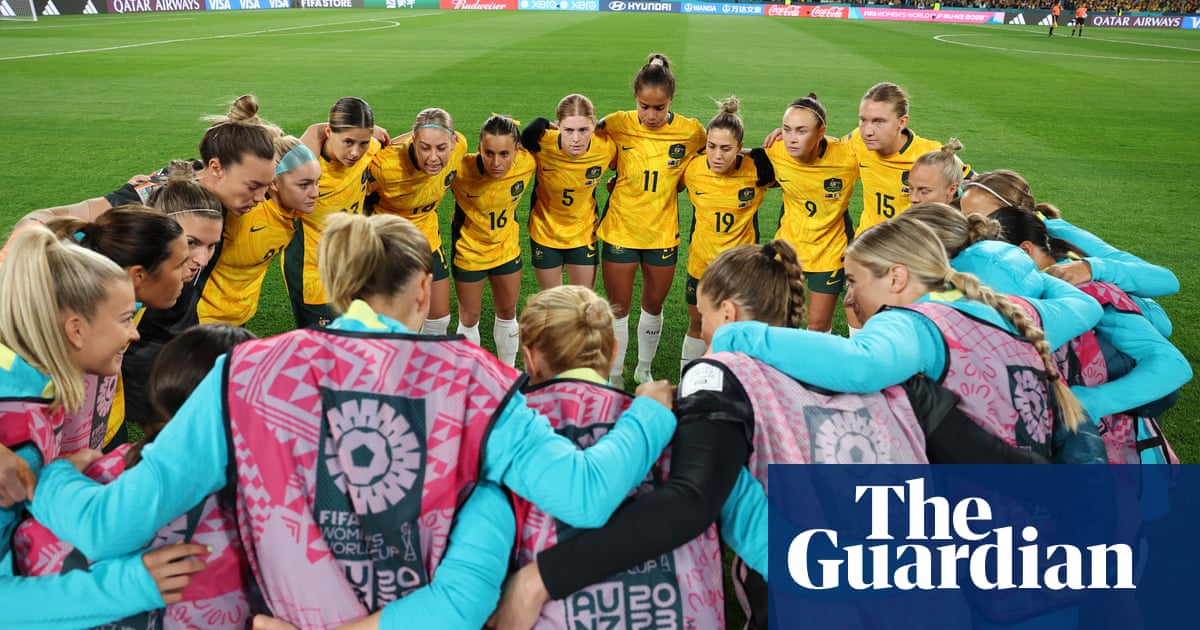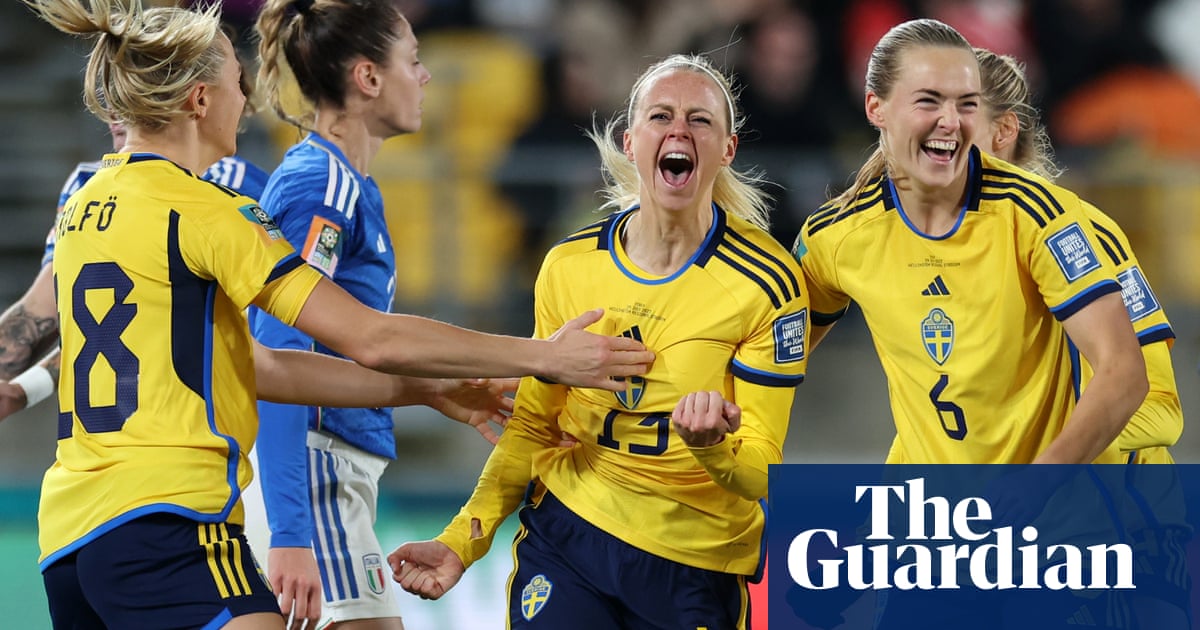
Waltzing Matildas or wilting Matildas? That’s the question that awaits resolution on Monday night, when Australia play Canada in one of the biggest matches in the team’s history.
The group stage maths is relatively simple. Win and the Matildas are guaranteed a spot in the round of 16 at their home Women’s World Cup. Lose and their tournament is over. Draw and the team’s fate will rest with Ireland, who would need to beat Nigeria (with goal difference breaking the Matildas’ way). The only way Australia can be certain of progression is to win – to beat the Olympic champions, a team who twice vanquished the Matildas last year.
Following the shock loss to Nigeria last Thursday, Australia are in the last-chance saloon. A group-stage exit would be disastrous – for the team, for coach Tony Gustavsson and for Football Australia, which has gone all-in on the Matildas as the centrepiece of their wider organisational strategy. But the door to the knock-out rounds remains wide open – all the Matildas need to do is walk through it.
Optimism that the home team can overcome Canada rose tenfold on Saturday when talismanic captain Sam Kerr declared herself available, having suffered a calf injury on the eve of the tournament. The return of the striker, together with Manchester City’s Mary Fowler following a concussion, ensures an invigorated Matildas front-line for the final group-stage clash.
The million-dollar question is how Gustavsson will deploy Kerr, who was at pains to be vague about her role when pressed over the weekend. The most likely option would be for the captain to come on as a substitute as needed, remaining unused if the Matildas are leading – which would give the most talked about calf muscle in Australia more time to heal. But if Kerr is named in the starting XI, it would be a defiant statement of intent from the Matildas.
Either way, Kerr’s unexpected Saturday lunchtime health update ensures the Australians enter the match buoyed by the return of their star. Canada, meanwhile, will have spent the past 36 hours considering how to handle Kerr – not knowing whether she will start, come off the bench or not play at all.
The timing of the announcement was surely tactical – just as Gustavsson and his captain said nothing about the calf injury until the team-sheet was submitted in the Matildas’ opening match against Ireland. Football Australia did not originally have a media opportunity scheduled on Saturday – they could have waited until 6.30pm on Monday to announce that Kerr would face Canada.
Instead, journalists were summoned to the team’s basecamp to come face-to-face with a smiling Kerr. Mind games abound. The intrigue only compounded on Sunday when Kerr did not participate in the 15 minutes of training open to the media; this was due, the team said, to the session running ahead of schedule and Kerr completing rehab commitments (she was spotted, with boots on, just as journalists were shooed away). The truth will only become clear on Monday night – for now, Canada are left to box at shadows.
If Kerr starts on the bench, Fowler will likely begin upfront alongside Arsenal’s Caitlin Foord. Hayley Raso and Cortnee Vine are anticipated to remain in their wide roles.
On Saturday, as the nation was busy rejoicing the return of Kerr, her teammate Ellie Carpenter made an astute observation. Against Nigeria, Carpenter said, the Matildas had made the most entries into the opposing box of their past 15 games. Despite the result, she suggested, this was a heartening data point. Without Kerr and Fowler, the Matildas struggled to capitalise – too many chances went begging (even though in the end it was their defence, not attack, that cost Australia). That might change on Monday.
The unanswered questions are in the heart of the midfield and further back in defence. But the Matildas’ starting XI has been largely unchanged in recent games, other than when forced by injury. The gamble for Gustavsson is whether he retains faith in the fundamentals, in such a tenure-defining clash, or opts to ring the changes following the disappointment of the defeat to Nigeria (and the physical impact of the four-day turnaround). It is possibly the most consequential choice of his career to date.
And so this is it. Before the World Cup, the Matildas had been talked about as genuine contenders to win the tournament. The team’s subpar opening matches have dampened those expectations. But the nature of Australia’s group stage clash with Canada only means that the knockout rounds have come early. If this squad wants to compete at the highest level, to be considered alongside the likes of England, the United States, Germany, Sweden and Spain, they need to beat top teams in must-win moments.
That is the paradox of Monday’s encounter. It is at once everything – a historic occasion before a capacity crowd – and business as usual in the do-or-die manner that is tournament football. It may also prove to be a sliding doors moment for the sport in Australia.












